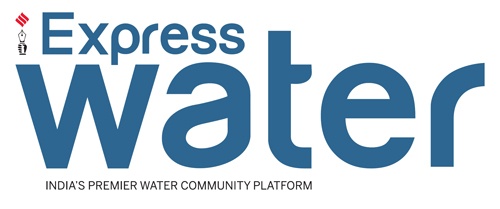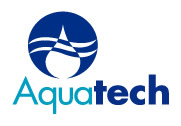Aquatech’s Managing Director, Devesh Sharma, recently did an interview with Express Water, titled “Desalination in India is Inevitable!”. In the Interview, Devesh is asked about desalination trends and technologies. In his answers, he discusses the desalination market and the technologies that can solve the issues facing it. He also explains Aquatech’s history with desalination, including the Ghalilah desalination plant in the UAE, and the technologies Aquatech has created and implemented in desalination projects around the world. You can read the full article, as published in Express Water, below. Devesh Sharma is the Managing Partner at Aquatech International – a global leader in water purification technology for industrial and infrastructure markets. Established in 1981, Aquatech helps some of the world’s most recognized companies solve their water scarcity challenges by providing solutions in desalination, wastewater reuse, and zero liquid discharge. He has been with Aquatech since 1997 and he has worked in virtually every facet of the company from commissioning to process engineer, project manager and business development manager. From 2006 to 2013, he was responsible for Aquatech’s business activities in Asia. Currently, he serves on the Board of Directors of the International Desalination Association (IDA) and chairs IDA’s Energy and Environment Committee. Mayur Sharma interacted with him about his experiences in the seawater desalination market and the strategies and performance of Aquatech in the desalination projects.
How can desalination best mitigate and address the high energy, cost, and toxic effluent from membrane problems? And what is the best way to reduce the environmental impact of polluted membranes after use?
Devesh: The best way for the industry to address these issues is to move to a true life-cycle-based approach and steer clear of evaluating only the capital cost of the plant.It is important to note that in desalination, an optimized design approach is completely aligned with environmental stewardship. The largest costs of desalination over the lifetime of a plant are power consumption, membranes & consumables, and chemicals. If the focus is on life-cycle costs then those who have developed more reliable and low energy consuming systems will have longer membrane lives and less chemical cleaning, so these facilities will not only have less energy consumption, they will also have in less waste. All of this ultimately results in the lowest total cost of water. This should be every-one’s ultimate focus. In the desalination market, the latest studies and advances are aimed at cost savings, both in energy consumption and in the final cost of desalinated water. In addition to the in-corporation of renewable energies, what all technologies would contribute to further reduce these costs?
Devesh: This is why Aquatech developed LoWatt™ technology. Our initial aim was to reduce energy consumption. The goal was simple: develop a plant with “low energy by design”, and to do this effectively, one would have to operate the system as clean as possible, as fouling of the membrane is a significant contributor to energy consumption.Through innovations such as our Nutrient Removal Filters (NRF™) and Osmotic Cleaning™ we met our goal and created a process that can reduce power by 20-25% over conventionally designed SWRO plants.In addition to this, we discovered many added advantages that amount to lower life-cycle cost and higher reliability. In the LoWatt™ process, membranes last longer and cleanings are less frequent. The result is higher up time and less waste – which equals less cost. Tell us about any ‘one’ cutting-edge technology which you believe will set the trend for the future of desalination?
Devesh: This is a very difficult question to answer. I’ve been in this industry long enough to have learned that there are no shortcuts or cutting-edge technologies that will solve problems with a snap of a finger. It seems that every month we read about something new and revolutionary, but when it comes to proof and practice-either technologically or economically – the wheels fall off the wagon, so to speak. When it comes to seawater desalination, I think there is still tremendous scope in improving the performance of reverse osmosis and this will lead to significantly improved economics as I have described with LoWatt™ technology.With regards to desalination of industrial brines, I do see Vacuum Membrane Distillation as a cutting-edge technology that could make a significant impact in the space. This technology has the potential to reduce capital as well as operating costs of zero discharge. Please shed some light on the product and services portfolio of your company related to seawater desalination. How does your product & technology compare to other desalination products & technologies in the market? And which are the new launches that you have come up with recently?
Devesh: Aquatech has the most comprehensive desalination technology portfolio in the industry. For seawater desalination, we are one of few companies in the world that has significant experience in thermal and membrane technologies.We have MSF, MED, as well as Reverse Osmosis in our tool- box.When it comes to waste-water desalination, we also have the complete technology line starting from biological treatment through membrane-based treatment and thermal evaporation for Zero Liquid Discharge (ZLD). We have several differentiating technologies, LoWatt™ for seawater being a case in point. The best place to gain a better understanding of our various differentiations would be our website at www.aquatech.com, but I would like to say our biggest differentiatoris our deep operating experience in all of these waters.Experience is the bedrock of anything we do, and in dealing with difficult to treat waters,there is nothing more valuable. How long have you worked in the field of seawater desalination? Could you tell us something about your own experience in this field?
Devesh: I have worked in seawater desalination for over 20 years. Aquatech has always worked on seawater reverse osmosis project for our industrial clients. When we acquired Aqua-Chem in the year 2000, it brought a thermal capacity for wastewater as well as seawater, and we catapulted into a bigger league when it came to addressing seawater projects around the world. We have participated in desalination projects on 6 continents and are passionate about bringing excellence in this space. What is the state of your company’s current and up-coming seawater desalination programs and projects?
Devesh: Our approach to seawater desalination is to partner with clients and off-takers that understand the importance of power consumption, plant longevity, and total life-cycle cost. We can work with them to implement a project completely, from intake to outfall, as we say, as a technology and O&M partner, or even financing the facility and selling water by the liter.
What were the achievements of your company in 2017-18? How has the company grown?
Devesh: Two keystone achievements this past year have been the commissioning of a project for one of the largest consumer products manufacturing companies in India. In addition, we completed three years of operation at the Ghalilah desalination plant in Ras Al Khaimah, UAE. Ghalilah is one of our major “low energy by design” facilities, and after three years of operation, almost no membranes have been replaced and the power consumption is even lower than what we guaranteed when we were awarded the project. We take great pride in this, as our complete focus as a company is to ensure that plant KPIs are met years into operation and not just through the initial performance test. The Indian company project is significant as it is our first LoWatt™ installation in the country and I feel this is a very exciting technology for India. What are some of the major orders won by your company in the past few years?
Devesh: In addition to the landmark projects noted above, we’ve had many other noteworthy achievements in recent years. These include wastewater recycle and ZLD for several projects in China, commissioning of the first integrated ZLD plant in Egypt, and wastewater-recycle and ZLD facilities for a gold mine in Colombia. Two very noteworthy projects include taking the waste- water-reject from a sewage recycling facility in Kuwait and converting it into high purity water for oilfield steamflood. The other is a completely biological, water reuse and ZLD facility for a municipal solid waste (garbage) to jet fuel facility in the United States. Each of these projects leverages our vast experience in treating challenging waters and wastewaters and our focus on optimizing the life-time cost of projects for our customers, but more importantly, most of them include long-term operations where we partner with our clients to ensure they achieve their operational objectives. What are your growth and expansion plans for the next five years?
Devesh: Overall, Aquatech has more than 1,000 installations in 60 countries, distinguished by a high percentage of repeat business. While we are headquartered in the United States, we have operations in India, Europe, the Middle East and China. We have a very strong presence in India including R&D facilities and a membrane innovation center where our QUA™ subsidiary develops and manufactures advanced membrane technology products. We look forward to continued growth in our key industry and infrastructure sectors, and ongoing innovation in technologies and systems that further enhance energy efficiency, lower life-cycle costs, and improved reliability. What is the future of sea-water desalination in India, in your opinion? Is seawater desalination a suitable technology for Indian conditions considering the huge costs involved?
Devesh: Desalination in India is inevitable. The water scarcity situation is severe and all approaches, including conservation, redistribution, water reuse, and desalination will be needed to address these challenges. We are very much active in this field having done seawater desalination for over 20 years in the country. We only intend to grow our desalination foot-print in India and expect our low energy approach to be very valuable to the market. Established in 1981, Aquatech is a global leader in water purification technology for industrial and infrastructure markets with a focus on desalination, water recycle and reuse, and zero liquid discharge (ZLD). Headquartered in Canonsburg, Pennsylvania, Aquatech has offices throughout North America, has a significant presence worldwide through subsidiaries in Europe, the Middle East, India and China. Through its network and world-wide operations, Aquatech has successfully executed more than 1,000 water management projects in over 60 countries around the globe. 

